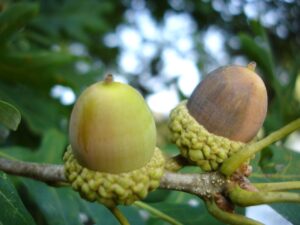Foods That Boost Testosterone
Foods That Boost Testosterone: A Comprehensive Guide

Testosterone, the primary male sex hormone, plays a crucial role in various bodily functions, including muscle mass, bone density, mood, and sexual health. While testosterone levels naturally decline with age, certain foods can help maintain and even boost these levels. This comprehensive guide explores the foods that can enhance testosterone production, backed by scientific evidence and detailed explanations.
Understanding Testosterone and Its Importance
Functions of Testosterone
- Muscle Growth and Strength: Testosterone is vital for muscle development and strength.
- Bone Density: It helps maintain bone density, reducing the risk of fractures.
- Mood and Mental Health: Adequate testosterone levels contribute to a sense of well-being and can help prevent depression.
- Sexual Health: It plays a key role in libido and erectile function.
- Red Blood Cell Production: Testosterone stimulates the production of red blood cells.
Causes of Low Testosterone
- Aging: Natural decline starts around the age of 30.
- Medical Conditions: Hypogonadism, diabetes, and obesity can lower testosterone levels.
- Lifestyle Factors: Poor diet, lack of exercise, and high stress can contribute to low testosterone.
Foods That Boost Testosterone
1. Lean Meats
Lean meats, such as chicken, turkey, and lean cuts of beef, are excellent sources of protein, zinc, and healthy fats—all crucial for testosterone production.
Benefits
- Protein: Essential for muscle repair and growth.
- Zinc: A mineral that plays a critical role in testosterone synthesis.
- Healthy Fats: Needed for hormone production.
2. Fatty Fish
Fatty fish like salmon, mackerel, and sardines are rich in omega-3 fatty acids, which are beneficial for hormone production.
Benefits
- Omega-3 Fatty Acids: Reduce inflammation and improve heart health, which indirectly supports testosterone levels.
- Vitamin D: Found in fatty fish, vitamin D is essential for testosterone production.
3. Eggs
Eggs are a powerhouse of nutrients, including protein, vitamin D, and cholesterol, which is a precursor for testosterone.
Benefits
- Protein: Supports muscle building.
- Vitamin D: Boosts testosterone levels.
- Cholesterol: Necessary
for the synthesis of testosterone.
4. Nuts and Seeds
Nuts and seeds such as almonds, walnuts, chia seeds, and flaxseeds are excellent sources of healthy fats, vitamins, and minerals.
Benefits
- Healthy Fats: Essential for hormone production.
- Zinc and Magnesium: Crucial minerals for testosterone synthesis.
- Antioxidants: Help reduce inflammation, promoting overall health.
5. Leafy Green Vegetables
Leafy greens like spinach, kale, and Swiss chard are high in magnesium, which has been shown to boost testosterone levels.

Benefits
- Magnesium: Increases bioactive testosterone levels.
- Vitamin C and K: Support overall health and reduce inflammation.
6. Oysters
Oysters are renowned for their high zinc content, making them one of the best foods for boosting testosterone.
Benefits
- Zinc: Essential for testosterone production and overall male reproductive health.
- Protein: Supports muscle growth and repair.
7. Garlic
Garlic contains allicin, a compound that can reduce cortisol levels, a hormone that competes with testosterone.
Benefits
- Allicin: Helps lower cortisol, indirectly boosting testosterone.
- Anti-inflammatory Properties: Promote overall health and well-being.
8. Ginger
Ginger has been used for centuries for its medicinal properties. Recent studies suggest it can boost testosterone levels and improve sperm health.
Benefits
- Antioxidants: Protect against oxidative stress.
- Increases LH (Luteinizing Hormone): Stimulates testosterone production in the testes.
9. Pomegranates
Pomegranates are rich in antioxidants and have been shown to improve heart health and boost testosterone levels.
Benefits
- Antioxidants: Reduce oxidative stress and inflammation.
- Improves Blood Flow: Enhances erectile function and overall male reproductive health.
10. Berries
Berries such as blueberries, strawberries, and raspberries are packed with antioxidants that help protect cells from damage and support overall health.
Benefits
- Antioxidants: Reduce inflammation and oxidative stress.
- Vitamins and Minerals: Support various bodily functions, including hormone production.
Incorporating These Foods into Your Diet
Sample Meal Plan
Breakfast:
- Scrambled eggs with spinach and tomatoes.
- A bowl of oatmeal topped with chia seeds and fresh berries.
Mid-Morning Snack:
- A handful of almonds or walnuts.
Lunch:
- Grilled salmon with a side of quinoa and steamed broccoli.
- A glass of pomegranate juice.
Afternoon Snack:
- Greek yogurt with a drizzle of honey and a sprinkle of flaxseeds.
Dinner:
- Lean chicken breast with a mixed green salad (kale, spinach, and Swiss chard) and a side of sweet potatoes.
- Steamed oysters with a garlic and lemon dressing.
Evening Snack:
- A small bowl of mixed berries.
Tips for Maximizing Testosterone Production
- Balance Your Diet: Ensure your diet includes a variety of foods from all food groups to provide all necessary nutrients.
- Stay Hydrated: Drink plenty of water to support overall health and optimal body function.
- Exercise Regularly: Incorporate both cardio and strength training to boost testosterone levels.
- Manage Stress: Practice stress-reducing techniques like meditation, yoga, or deep breathing exercises to lower cortisol levels.
- Get Enough Sleep: Aim for 7-8 hours of quality sleep per night to maintain healthy hormone levels.
Maintaining optimal testosterone levels is crucial for men’s health, affecting everything from muscle mass and bone density to mood and sexual health. By incorporating testosterone-boosting foods such as lean meats, fatty fish, eggs, nuts, seeds, leafy greens, oysters, garlic, ginger, pomegranates, and berries into your diet, you can naturally enhance your testosterone levels. Coupled with a healthy lifestyle that includes regular exercise, adequate sleep, and stress management, these dietary changes can lead to significant improvements in your overall well-being. Always consult with a healthcare provider before making significant changes to your diet or lifestyle, especially if you have



